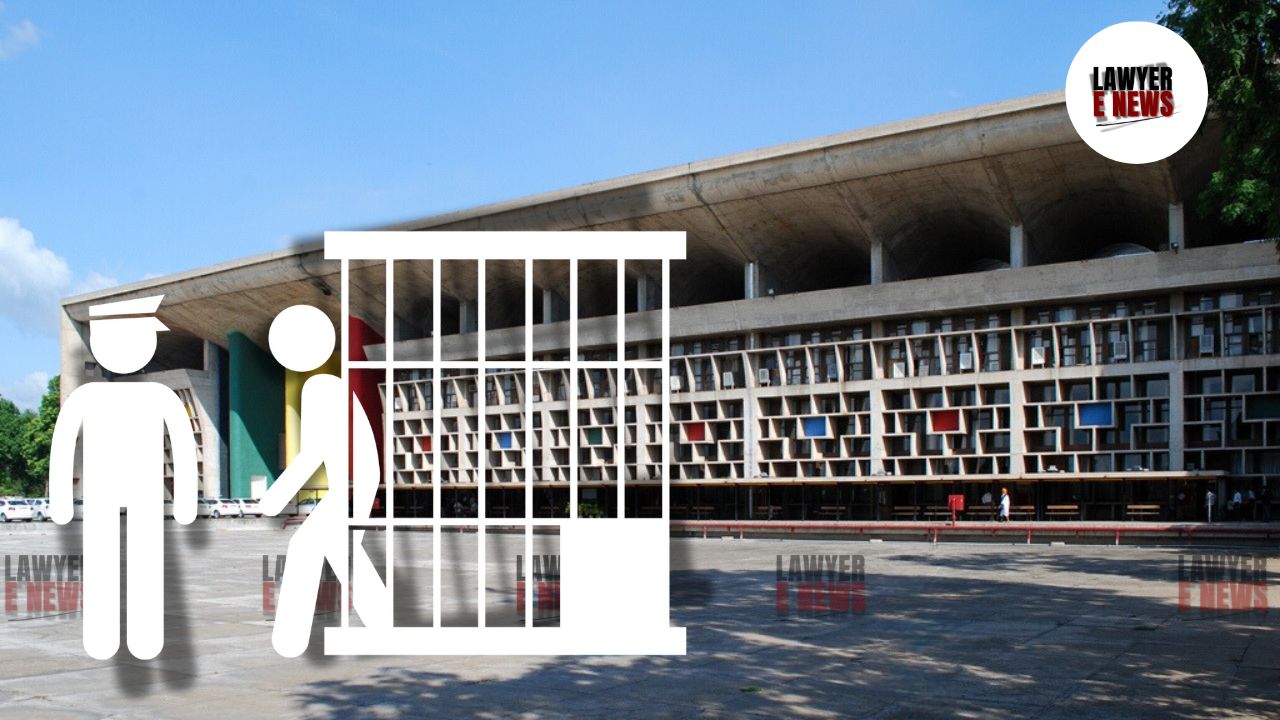-
by Admin
15 February 2026 5:35 AM



The Punjab and Haryana High Court, in a recent judgment delivered on September 2, 2024, provided crucial clarity on the legal implications of unauthorized mobile phone possession by prisoners. A Full Bench comprising Justices Sureshwar Thakur, Deepak Sibal, Anupinder Singh Grewal, Meenakshi I. Mehta, and Rajesh Bhardwaj ruled that mere detection of a mobile phone in a prisoner's possession cannot, without a proper conviction, justify the denial of parole. The court emphasized that such a denial would be contrary to the principles of criminal jurisprudence, particularly the presumption of innocence.
The judgment arose from a criminal writ petition filed by Achan Kumar, who had been denied parole by the authorities on the grounds of unauthorized possession of a mobile phone while serving his prison sentence. The denial was based on Section 3 of the Punjab Good Conduct Prisoners’ (Temporary Release) Act, 1963, and other related provisions of the Punjab Jail Manual, which list the possession of prohibited articles as a prison offense. Kumar challenged the denial, arguing that no trial had been conducted nor any conviction handed down for the alleged offense.
The court was tasked with addressing a set of substantial legal questions regarding whether the mere possession of a mobile phone by a prisoner, without a corresponding conviction, could justify the denial of parole. The Bench critically examined previous judgments, particularly the conflicting views expressed in "Gurdeep Singh vs. State of Haryana" and "Vakil Raj vs. State of Haryana," along with a Full Bench decision in "Kulwant @ Monu vs. State of Haryana."
The court reiterated the foundational legal principle that an accused or prisoner is presumed innocent until proven guilty. Justice Sureshwar Thakur, writing for the Bench, emphasized that denying parole based solely on the detection of a mobile phone, without any trial or conviction, would amount to a breach of this principle. The Bench pointed out that while maintaining prison discipline is important, it cannot override the basic tenets of fair trial and the presumption of innocence enshrined in Article 21 of the Indian Constitution.
The Bench also addressed the procedural aspects of judicial appraisal of punishments imposed by jail authorities. It was highlighted that the mere administrative process of judicial appraisal does not equate to a fair trial, where the prisoner is given the full opportunity to defend themselves through legal representation and cross-examination of witnesses.
The judgment underscored that for any punitive action, including denial of parole, there must be concrete evidence of misuse of the mobile phone for any criminal activity. The court held that without such evidence, and without a formal conviction, denying parole would be unjust and arbitrary.
The court also compared the relevant provisions of the Punjab Jail Manual and the Prisons Act with similar provisions under the Haryana Good Conduct Prisoners (Temporary Release) Act, 1988, and 2022. It noted that while the Haryana statutes contained more stringent provisions regarding parole denial for mobile possession, the absence of such explicit provisions in the Punjab statutes further weakened the case for automatic denial of parole.
Justice Sureshwar Thakur, delivering the judgment, observed, "The denial of parole on the mere detection of a mobile phone, without any conviction, not only breaches the presumption of innocence but also undermines the right to a fair trial as guaranteed under Article 21 of the Constitution."
This judgment marks a significant reaffirmation of the legal principles surrounding parole and the rights of prisoners. By striking down the automatic denial of parole for unauthorized mobile possession without conviction, the Punjab and Haryana High Court has set a precedent that upholds the importance of due process and the presumption of innocence. This ruling is expected to have widespread implications for the administration of justice in prisons across the state.
Date of Decision: September 2, 2024
Achan Kumar vs. State of Punjab and Others
